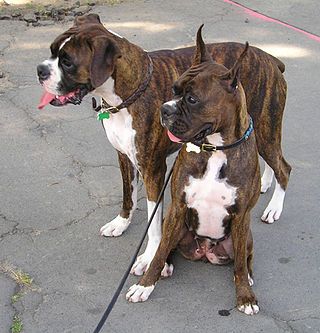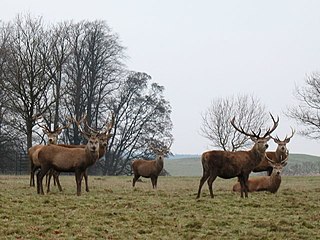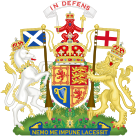
The Sexual Offences Act 2003 is an Act of the Parliament of the United Kingdom.

Docking is the removal of portions of an animal's tail. While docking and bobbing are more commonly used to refer to removal of the tail, the term cropping is used in reference to the ears. Tail docking occurs in one of two ways. The first involves constricting the blood supply to the tail with a rubber ligature for a few days until the tail falls off. The second involves the severance of the tail with surgical scissors or a scalpel. The length to which tails are docked varies by breed, and is often specified in the breed standard.
In law, coming into force or entry into force is the process by which legislation, regulations, treaties and other legal instruments come to have legal force and effect. The term is closely related to the date of this transition. The point at which such instrument comes into effect may be set out in the instrument itself, or after the lapse of a certain period, or upon the happening of a certain event, such as a proclamation or an objective event, such as the birth, marriage, reaching a particular age or death of a certain person. On rare occasions, the effective date of a law may be backdated to a date before the enactment.

In the United Kingdom, devolved matters are the areas of public policy where the Parliament of the United Kingdom has devolved its legislative power to the national assemblies of Scotland, Wales and Northern Ireland, while reserved matters and excepted matters are the areas where the Parliament retains exclusive power to legislate.

The Health Act 2006 is an Act of the Parliament of the United Kingdom. It provides for a number of administrative changes in the National Health Service.

The Consumer Credit Act 2006 (c.14) is an Act of the Parliament of the United Kingdom intended to increase consumer protection when borrowing money.

The Charities Act 2006 is an Act of the Parliament of the United Kingdom intended to alter the regulatory framework in which charities operate, partly by amending the Charities Act 1993. The Act was mostly superseded by the Charities Act 2011, which consolidates charity law in the UK.

The Equality Act 2006 is an Act of the Parliament of the United Kingdom covering the United Kingdom. The 2006 Act is a precursor to the Equality Act 2010, which combines all of the equality enactments within Great Britain and provide comparable protections across all equality strands. Those explicitly mentioned by the Equality Act 2006 include age; disability; sex; proposed, commenced or completed gender reassignment; race; religion or belief and sexual orientation. The changes it made were:

The Local Government and Public Involvement in Health Act 2007 is an Act of the Parliament of the United Kingdom.
In many countries, a statutory instrument is a form of delegated legislation.

The Health and Social Care Act 2008 is an Act of the Parliament of the United Kingdom.

The Safeguarding Vulnerable Groups Act 2006 is an Act of the Parliament of the United Kingdom. It was created following the UK Government accepting recommendation 19 of the inquiry headed by Sir Michael Bichard, which was set up in the wake of the Soham Murders.

The Animal Welfare Act 2006 is an Act of the Parliament of the United Kingdom.

Animal welfare in the United Kingdom relates to the treatment of animals in fields such as agriculture, hunting, medical testing and the domestic ownership of animals. It is distinct from animal conservation.

The Mineral Workings Act 1971 is an Act of the Parliament of the United Kingdom which provided for the safety, health and welfare of people on installations undertaking the exploitation of, and exploration for, mineral resources in UK offshore waters.





